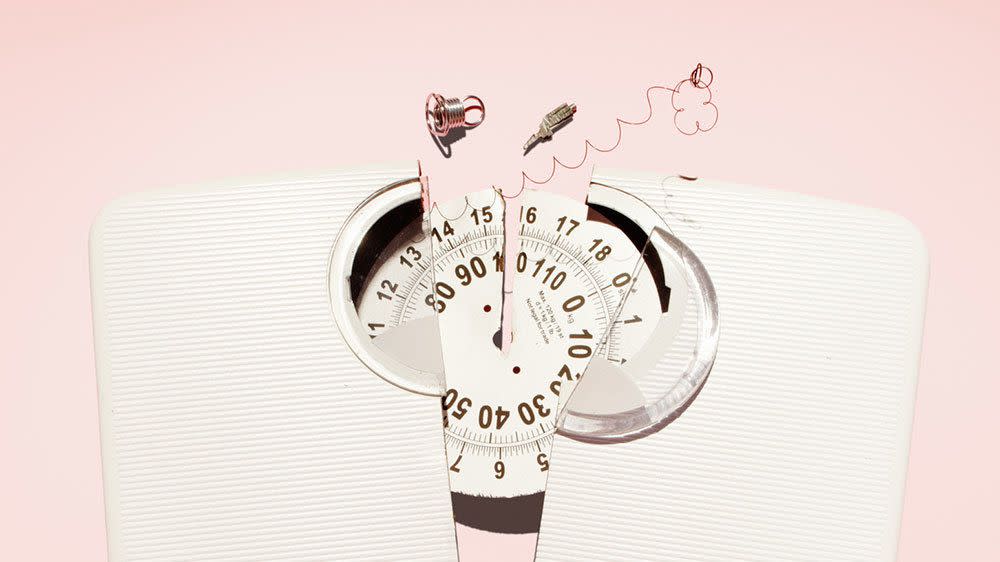Why Commenting On a Woman's Weight Is Never a Good Idea

Getty Images
Asking a woman how much she weighs or otherwise commenting on her figure is generally understood to be a big no-no. (Apparently Donald Trump missed that memo.) This is even more important when it comes to what is said to young girls; women who remember their parents commenting on their weight when they were growing up are more prone to being overweight and are less satisfied with their weight as adults, says new research published in Eating and Weight Disorders.
For this new retrospective study out of Cornell's Food & Brand Lab, 501 women between ages 20 and 35 were surveyed about their weight satisfaction (how much weight they felt they needed to lose to be happy, for example) and how frequently they recalled their parents making weight- and eating-related comments to them when they were younger. Researchers found that women with a healthy BMI were less likely to report that their parents commented on their weight or eating habits compared to women whose BMIs were considered overweight or obese.
The study also found that both overweight and healthy-weight women who remembered their parents making these comments were less satisfied with their weight as adults. (The correlation showed that the more parents spoke out, the greater the child's dissatisfaction later in life.) Even when comparing women of similarly healthy weights, those who reported that weight as a young girl was a concern to their parents, were less satisfied with their bodies. "This indicates that weight-related comments were damaging to body image regardless of [actual] weight," the study authors conclude.
Not surprisingly, women whose parents talked about the food they ate, rather than their weight, were more satisfied with their weight as adults and actually weighed less when researchers compared the entire group. Encouraging kids to make healthy food choices for themselves leads to healthier lifelong habits, lead author Brian Wansink, Ph.D. said in the press release.
Regardless if parents have good intentions or not, this kind of passive weight-shaming should be stopped in its tracks as early as possible. Not only are these comments damaging to body image later in life, but they have an inverse, unhealthy effect on women's diet and weight. As the research shows, comments about weight does not lead to healthy BMIs. (Studies consistently show that fat shaming can actually harm your body.) As Wansink concludes, "Commenting on a woman's weight is never a good idea, even when they are young girls." Preach.

